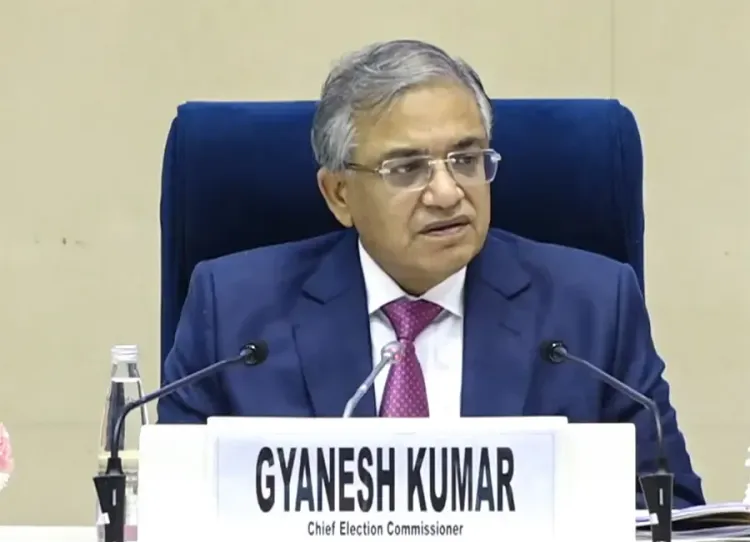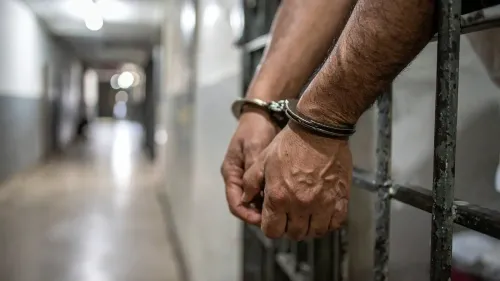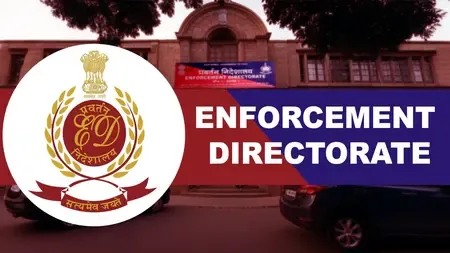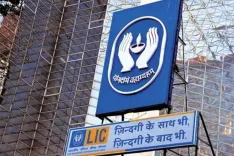Will SIR Initiate in 12 States and UTs? Electoral Rolls to be Frozen Tonight

Synopsis
Key Takeaways
- SIR to initiate in 12 states and UTs.
- Electoral rolls will be frozen tonight.
- Aimed at updating and purifying voter lists.
- Political parties urged to appoint BLOs.
- Process involves digital linking for verification.
New Delhi, Oct 27 (NationPress) Following a successful voter verification campaign, the Special Intensive Revision (SIR) initiative is set to commence in 12 states and Union Territories (UTs), with the electoral rolls of these regions being officially locked tonight, announced Chief Election Commissioner (CEC) Gyanesh Kumar on Monday.
During a media briefing about the upcoming voter list revision, the CEC commended the electoral officials and voters for the success of the SIR in Bihar and elaborated on the procedure and importance of this 'purification drive'.
The CEC noted that since Independence, SIR has been conducted in the country eight times, from 1951 to 2004, with the last occurrence in 2004. He mentioned that political entities have consistently pushed for voter verification to ensure that only legitimate participants engage in the electoral process.
It is crucial to revise electoral rolls periodically to address issues such as voter duplication and the removal of names of those who have either deceased or permanently relocated from the electoral state.
Detailing the SIR process, the CEC stated that enumeration forms will be printed for the states involved, and the voters' lists for these regions will be frozen by Monday night.
He hinted at a nationwide rollout of SIR, starting with Bihar and soon expanding to other states.
Typically, a polling station accommodates about 1,000 voters. Within a single Assembly, there are approximately 300-400 polling stations supervised by one Electoral Registration Officer (ERO). The ERO guides the Booth Level Officers (BLOs) in preparing and verifying the electoral rolls.
Additionally, the BLOs will distribute enumeration forms to voters, allowing them to verify their details through 'digital linking' to earlier records.
“If there have been no changes since 2003, linking with old EPIC cards is unnecessary; however, those without linked names must submit required documents as requested by the election panel,” he clarified.
“BLOs will visit each household three times,” he added.
The draft and final voter lists will be published by EROs and Deputy EROs, who are responsible for ensuring accurate electoral rolls.
The CEC further urged the six national parties to appoint their respective BLOs and instructed the Chief Electoral Officers, District Electoral Officers (DROs), and EROs to engage in thorough discussions with political parties, providing them with detailed insights about the 'purging' exercise.









